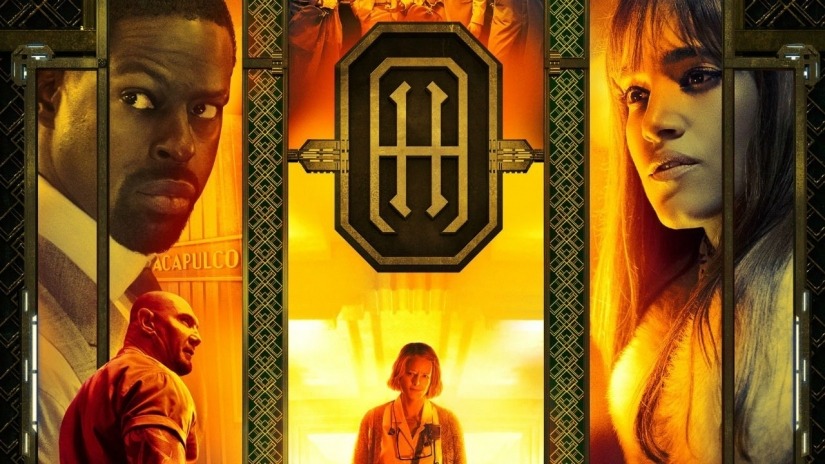Once upon a time, not all that long ago, Hollywood went through a phase of adapting fairy tales into movies, and the results weren’t great. Reimaginings of classic tales like Red Riding Hood, Snow White and Hansel & Gretel took the well-known characters, but threw away the morality tale aspect in favour of tired action tropes. In doing so they created a series of forgettable, uninteresting films, that with little exception crashed and burned at the box office.
In recent years there seems to have been something of a return to the fairy tale format, but instead of shoehorning archetypical characters into an action mould, movies like John Wick and The Shape Of Water have used the fantastical morality tale format as a framework to take conventional movie plots and transform them into compelling, original works of cinema.
The most recent addition to that pantheon is Hotel Artemis, and much like the John Wick franchise it’s a hugely enjoyable take on a typical action premise. But while the John Wick links are easy to make, and while Hotel Artemis drips in director Drew Pearce’s knowledge of action cinema, simple comparisons to other films do Hotel Artemis a disservice.
Set against the backdrop of a city on the verge of anarchy, Pearce imagines a nightmare LA even more in thrall to corporations than the US currently is. While this is a useful story device, it’s also a somewhat chilling vision of an all too real future. By juxtaposing this scenario with the fantastical Hotel Artemis, an ageing, Art Deco edifice that serves as a private hospital for criminals, Pearce manages to create an entertaining sci-fi action thriller, while still retaining an edge of social commentary.
Part of the fantastical feel of the hotel comes from its unusual nature. The idea of a mob doctor has been touched on in countless pieces of drama, but the idea of a fully fledged private hospital/hotel/members club is a much more original and interesting take. Beyond that, it also comes from Ramsey Avery’s intricate and imaginative production design, which gives the city, and the hotel in particular, the vibe of a glamourous future that has been well worn by the time we reach it.
Once inside the hotel, the film hits high gear, quickly establishing an ensemble of characters who are compelling, likeable and loathsome in varying degrees. Pearce has been working at this level for less than a decade, but in that short time he has clearly built up a great deal of goodwill, and the cast is testament to that. Each and every member brings a strong, entertaining performance, from Sterling K Brown and Jodie Foster, carrying the film with likeability and pathos in the lead roles, to Sofia Boutella and Charlie Day who dance effortlessly between menace and comic relief.
Pearce sets up the promise of confrontation early on in the film, but at no point does this inevitable outcome overwhelm the character development. We’re teased with well over an hour of tense foreplay, cranking up the tension with twists and turns, which each eventually feed back into the film’s A-plot. When we finally get a cathartic release of utter ultraviolence, it’s every bit as visceral and over the top as one might expect from the action fairly tale genre.
It would be unfair to describe Hotel Artemis as flawless. While Foster’s performance as The Nurse is wonderful, the character’s backstory feels somewhat cliched. Similarly, there are a few elements here and there that felt terribly familiar – most notably a couple of the action beats, and the characterisation of Dave Bautista’s Everest, essentially Drax the Hospital Porter. But none of the handful of minor niggles are enough to derail a thoroughly enjoyable movie, and an exceptional debut feature.
Hotel Artemis is in UK cinemas from Friday.

